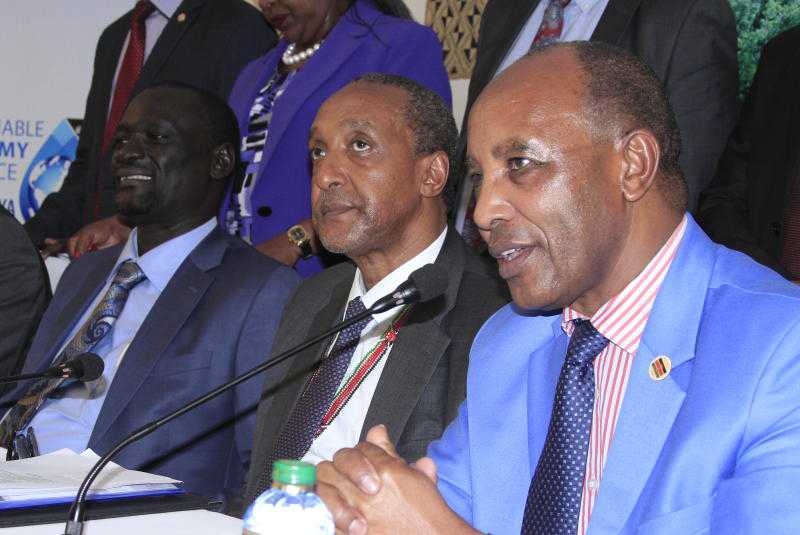×
The Standard e-Paper
Fearless, Trusted News

Nyandarua Governor Francis Kimemia (right) addresses a press conference in Nairobi on September 10, 2018, alongside Foreign Affairs PS Macharia Kamau (centre) and Council of Governors Chairman Josephat Nanok on the upcoming Blue Economy conference to be held in Nairobi on November 26-28 in Nairobi. Kenya is seeking to raise Sh800 million as it plans to host its first global conference. [David Njaaga, Standard]
Pursuit of Kenya’s blue economy growth needs right mix of technology